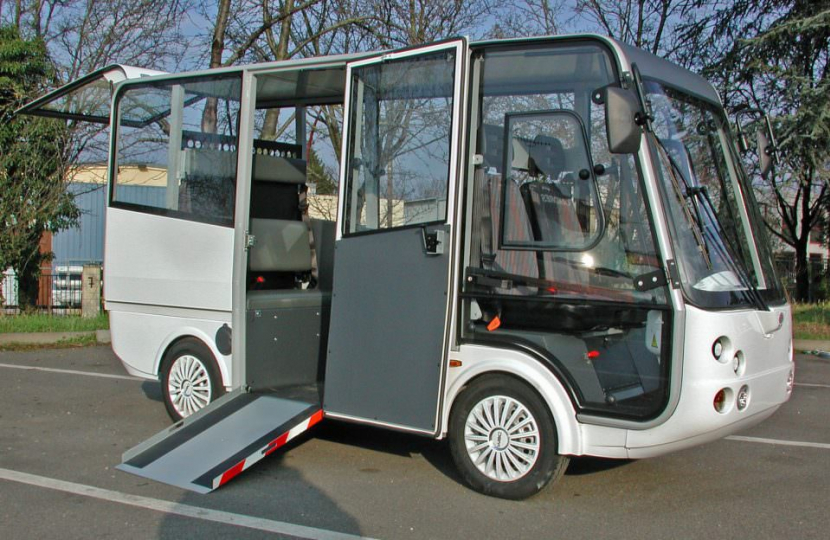
Could eco-friendly flexible bus/taxis be the way forward?
It is time to relook at public transport in Tunbridge Wells.
Both taxi and bus operators have suffered enormously during Covid. Taxi drivers often wait up to 2 or more hours clustered around the station for the passenger that will hopefully hire them for a significant ride. Buses are seen with few passengers, carrying many empty seats at great expense. While bus operators receive subsidies from government on specific routes or through bus pass schemes, the low amount received per passenger and small passenger numbers, results in many routes becoming unviable.
People use their cars for door-to-door convenience, comfort at a time of their choosing and the ability to carry goods, children or those unable to walk or cycle. Thankfully many more people are engaging with active travel. However these actions can also reduce numbers using public transport.
Could eco-taxis, operate like buses in the centre of town picking up passengers as they circulate in the centre of town and operate as taxis with door-to-door services in residential areas, be an answer? Comparable taxi/bus sytems are being trialed or operated elsewhere in the UK and Europe. Regulations are complex but not insurmountable.
In Tunbridge Wells we have always had the problem of our long central area stretching up the steep hill from the Pantiles to Five-ways and beyond. The hill provides a challenge for tourists and to all those who live or park at one end of the town but also wish to visit the other. Creating a service could help rejuvenate our town post covid, making it more attractive for all.
There is a new attractive, electric, light weight, narrow 7-seater, wheelchair compatible minibus (modified for the British market) that could just be the answer. They operate at a maximum of 26 mph and carry enough power for a working day.
We are working with others to run and fund a trial flexible taxi/bus service in the centre of RTW, possibly operating on the route shown. If successful and as demand develops, it could also operate as a taxi in wider residential areas. This new flexible service could bring many more visitors to access the whole of our town, much as our previous Christmas Train, thereby creating a new line of eco-friendly business. A trial should help establish its viability, economically, environmentally and socially, for the service and the public.
As a light electric vehicle it would be environmentally friendly and potentially reduce the number of ‘second’ cars owned by many families for that town commute. Operating at low speeds it would be compatible with Active Travellers either walking or on bikes. Its narrow gauge makes it easier to travel along our residential streets and potentially enable new routes to the hospital, industrial estates, and car parks, both in the centre of RTW and on the outskirts.
The service would preferably be operated by local taxi and bus operators in addition to their existing taxi and bus services which are more viable for longer distances and mass transport. Following the trial, it would be up to the taxi and bus operators to access public demand and decide if they wish to continue or expand the service. Could this service be part of a more sustainable public transport system, that could help reduce our congestion and create a more eco-friendly town?
Councillor David Scott, Deputy Leader TWBC

